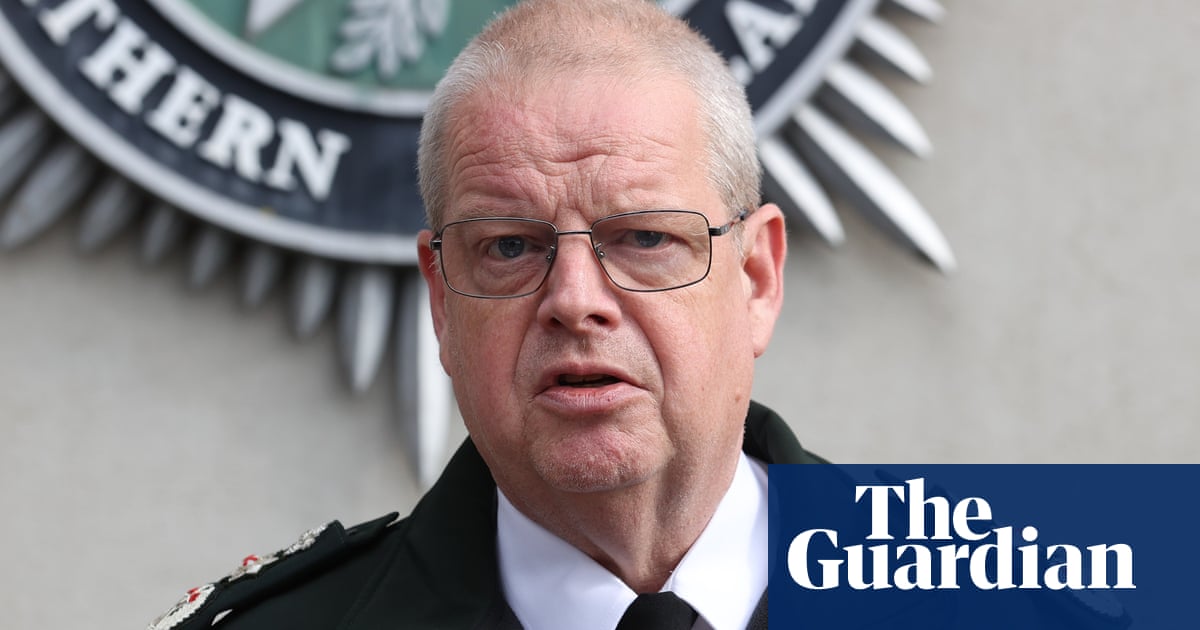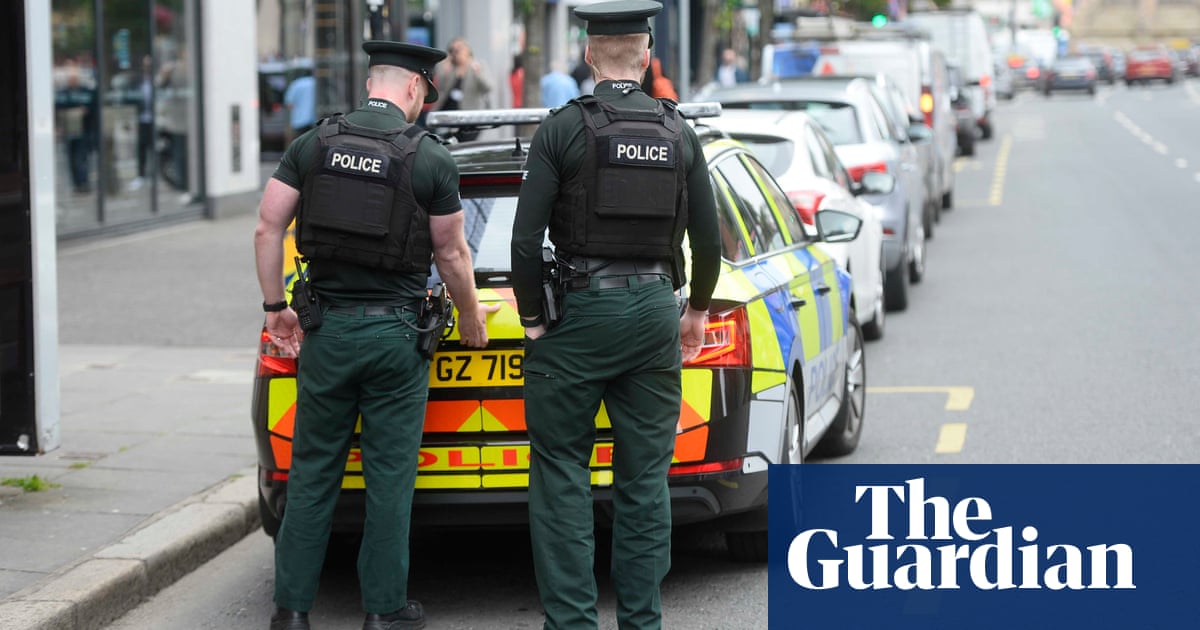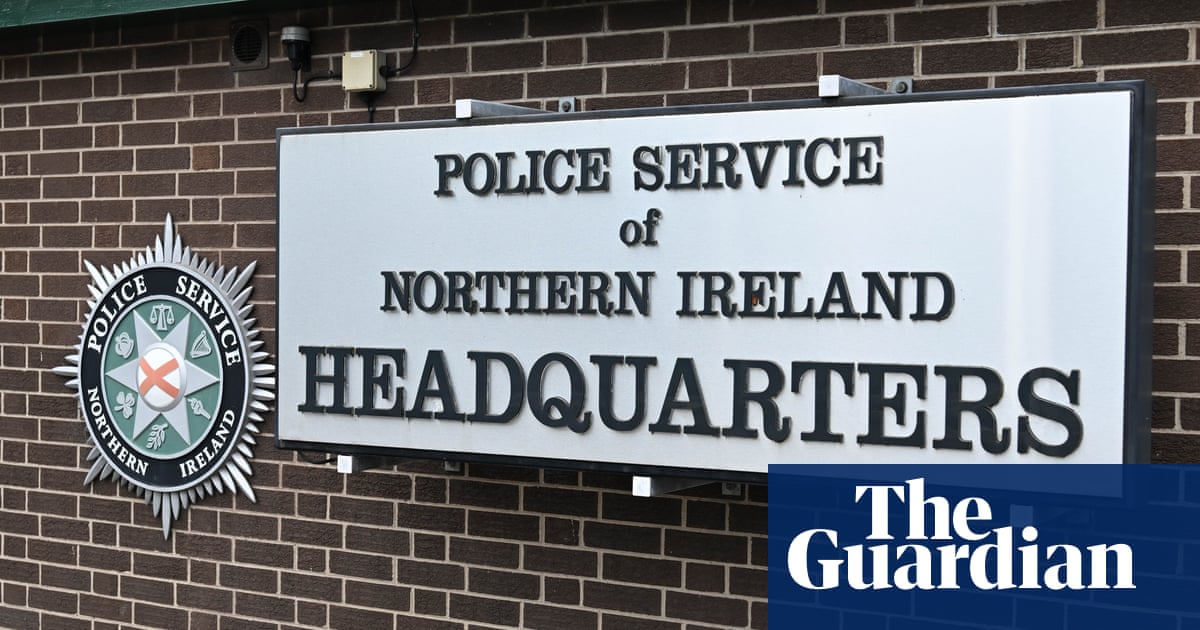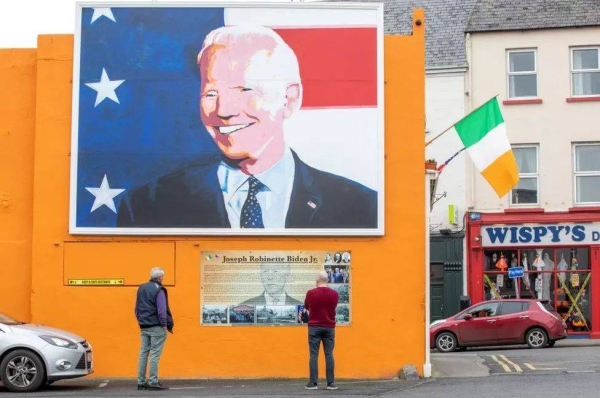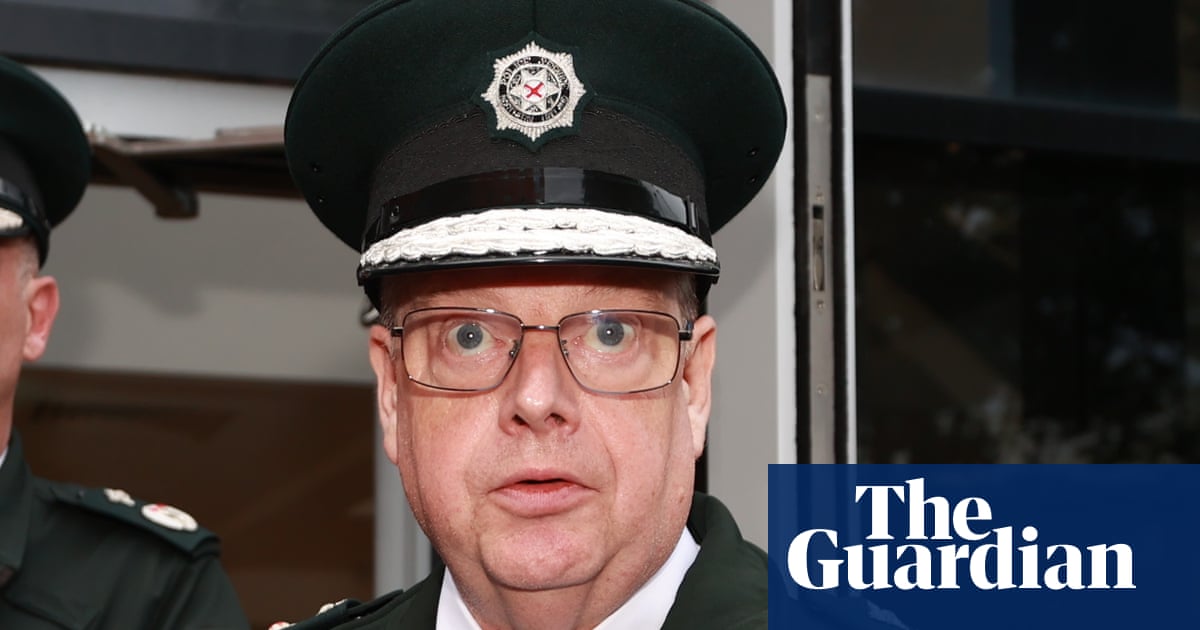
The chief constable of the Police Service of Northern Ireland has resigned after weeks of pressure over a series of issues including a serious data breach involving the personal information of more than 10,000 officers and support staff.
Policing board members accepted the resignation of Simon Byrne on Monday, it was announced at a press conference.
The resignation, discussed at an emergency meeting of the board, follows a long-running row on perceived differences in how republican and loyalist gatherings were policed during the pandemic, when rules limited the number of those who could meet to six.
And last week, Belfast’s high court ruled last week that the force unlawfully disciplined two junior officers in order to placate Sinn Féin.
In a separate crisis, it emerged that data handling mistake led to the publication of personal information of more than 10,000 officers and support staff. Both issues prompted calls from political leaders for Byrne to go.
The seemingly crucial blow to Byrne’s leadership came last Tuesday when a high court judge, Mr Justice Scofield, ruled that the PSNI unlawfully disciplined two officers over their policing of a republican commemoration in Belfast in February 2021 during Covid-19 restrictions.
The officers briefly detained and handcuffed a man on suspicion of disorderly behaviour during a wreath-laying ceremony at the scene of a loyalist gun attack that killed five Catholics in 1992, prompting furious protests from Sinn Féin. Byrne apologised and the PSNI suspended one constable and repositioned the other.
Byrne had originally said he would not resign following an emergency meeting of the Policing Board on Thursday and indicated that he was considering an appeal against the court ruling. That statement was met with anger from the Police Federation for Northern Ireland, with its chair, Liam Kelly, expressing “disbelief and anger” at the chief constable’s statement.
Edgar Jardine, the vice-chair of the board, said the federation’s statement was “quite significant” in Byrne’s decision change his mind and quit. He told the press conference: “The welfare of his force was always at the top on the forefront of his mind.”
At Monday’s press conference, the Policing Board chair, Deirdre Toner, said Byrne had tendered his resignation with immediate effect. “I would like to record my thanks and appreciation to Simon for his work over the course of the last four years as chief constable,” she said. “He is undoubtedly a dedicated police officer with a deep respect for the profession of policing.”
Toner also read out statement from Byrne. He said: “The last few days have been very difficult for all concerned. Regardless of the rights and wrongs, it is now time for someone new to lead this proud and resolute organisation. Can I thank those who have shown me trust advice and friendship. And of course thank you to the brave men and women of the Police Service of Northern Ireland.”
Byrne was already facing pressure after a major data breach from the PSNI last month. Personal data of all serving members of the PSNI was mistakenly published in response to a freedom of information request. The details of about 10,000 PSNI officers and staff included the surname and first initial of every employee, their rank or grade, where they are based and the unit they work in.
The PSNI has confirmed that the list is in the hands of dissident republicans, who continue to target officers.
A number of other data breaches have since come to light, including the loss of a police officer’s laptop and notebook, which contained details of 42 officers and members of staff after the items fell from a moving vehicle.
Earlier on Monday, a DUP member of the legislative assembly at Stormont, Trevor Clarke, said Byrne should know “his time is up”, as the politician arrived at a last-minute meeting of the Policing Board.
Jardine called for greater political support and funding for the PSNI. He said: “We’re currently dealing with a very difficult funding situation.
“The new decade, new agreement [plan] talked about 7,500 officers. Under current funding arrangements, we are down probably to about 6,500 by the end of this financial year. So we’re asking a great deal of our police service. Now more than ever it requires the full support of the political and civic society.”





